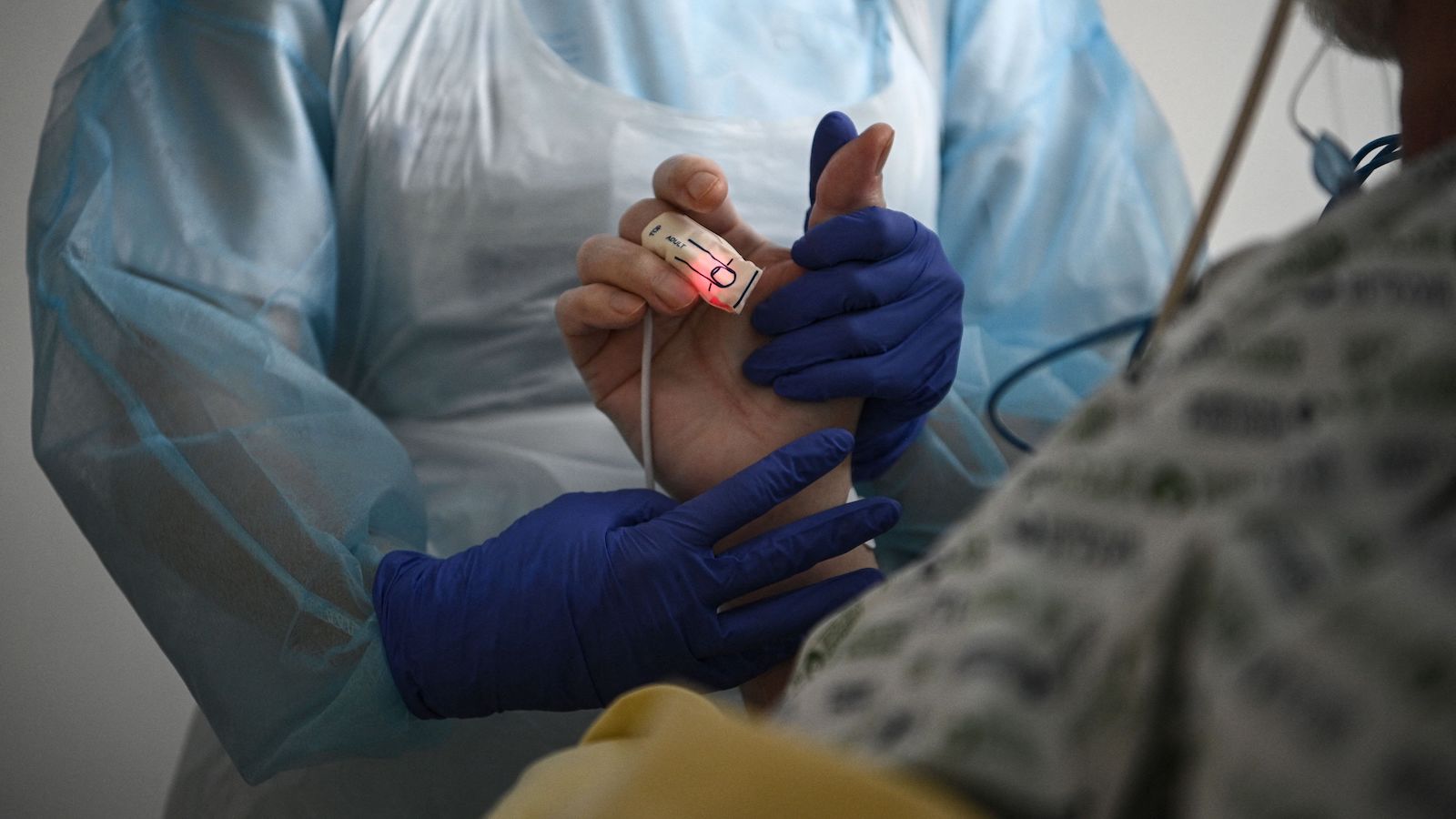New guide to protect yourself from covid-19 2:29
(CNN Spanish) -
The antiviral molnupiravir is being studied as a drug to treat the coronavirus.
In preliminary studies it showed promising results.
In this episode, Dr. Elmer Huerta offers us details of the investigations and their results.
You can listen to this episode on Spotify or your favorite podcast platform or read the transcript below.
Hello, I am Dr. Elmer Huerta and this is your daily dose of information about the new coronavirus, information that we hope will be useful to take care of your health and that of your family.
Today we will see what is known about the drug molnupiravir, which has apparently shown promising results in treating covid-19.
advertising
Medications that have been studied to treat covid-19
Without a doubt, the development of vaccines and the implementation of vaccination programs have captured the attention of the entire world in this pandemic.
Unfortunately, science has been less effective in developing drugs to control infection.
In this sense, we saw that during the first year of the pandemic, various drugs were not able to demonstrate their usefulness.
Thus, we have learned that hydroxychloroquine and ivermectin have shown no effectiveness in preventing or treating the disease, or that remdesivir, antibody-rich plasma and monoclonal antibodies have shown little effectiveness in controlling COVID-19.
In any case, the search continues and, in recent days, a study was released that gives a glimmer of hope that there may be a drug that helps control the disease.
What about molnupiravir?
It is the antiviral molnupiravir that, in very preliminary studies, has shown some activity in reducing viral load in laboratory animals and a group of human volunteers.
Let us remember -as we have heard in various episodes- that the development of a vaccine -and a drug- has two stages: the preclinical, which is done in the laboratory with test tubes and animals;
and the clinical stage, which is done in humans.
Let us also remember that this clinical stage has three phases: one, two and three.
The fact is that molnupiravir, like other antiviral drugs, had been shown during the preclinical phase to be active in causing a biological situation called "bug catastrophe" in the SARS CoV2 genome.
What does the research say about the use of molnupiravir?
Described in 2002, the phenomenon in which an antiviral drug affects the genome of a virus so much that it suffers a huge number of genetic errors or mutations, making it unable to replicate effectively, is known by that curious name. with which the infection does not occur.
In this regard, a study in ferrets published in Nature Microbiology in December 2020 had shown that molnupiravir was well tolerated and capable of reducing the SARS-CoV-2 viral load within 24 hours of the first administration of the drug.
The drug has already advanced to the clinical stage in humans and at the virtual annual meeting of Retroviruses and Opportunistic Infections, on March 6, the results of a phase 2a study were released, in which 202 volunteers underwent tests. a randomized, double-blind study.
Participants
The 202 participants recruited from an outpatient clinic had fever or other respiratory symptoms, confirming that they had COVID-19 with molecular testing on day 4.
Volunteers were randomly assigned to three different groups: 200 milligrams, 400 mg, and 800 mg of molnupiravir.
Those who received the 200 mg dose were paired with placebo and the other two groups had healthy people as a control group.
Participants took the pills twice a day for five days and were followed for 28 days to monitor for complications or adverse events.
The results
To verify the effectiveness of the medicine in preventing infection by the new coronavirus, the volunteers had five molecular tests during those 28 days.
The results were very interesting.
It was found that, compared with placebo, those who received the drug were less likely to have virus in the respiratory tract and, as the dose was increased, the negativity of the virus samples in the participants also increased, concluding that the most effective dose was 800 milligrams.
Without a doubt, this study is very hopeful, but we must say that it is too preliminary for the drug to begin to be used.
Phase 3 studies are now awaited to demonstrate or discard the results obtained so far.
Do you have questions about the coronavirus?
Send me your questions on Twitter, we will try to answer them in our next episodes.
You can find me at @DrHuerta.
If you think this podcast is useful, help others find it by rating it on your favorite podcast app.
We'll be back tomorrow so be sure to subscribe to get the latest episode on your account.
And for the most up-to-date information, you can always head to CNNEspanol.com.
Thanks for your attention.
If you have any questions you can send them to Dr. Elmer Huerta through Twitter. You can also head over to CNNE.com/coronaviruspodcast for all episodes of our “Coronavirus: Reality vs. Reality” podcast. fiction".
coronavirusCovid-19

